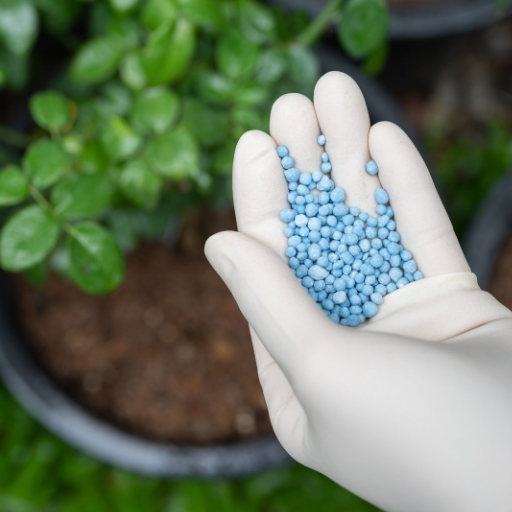Since organic gardening and sustainable methods have gained momentum over the last decade, fertilizers have become vital for achieving high growth and production. Among the environmentally friendly options, 5-10-10 Organic Fertilizer stands out due to its balanced nutrient composition. This fertilizer offers numerous advantages for both seasoned gardeners and newcomers, ensuring crop yields are maintained while preserving soil health.
Understanding Organic Fertilizers
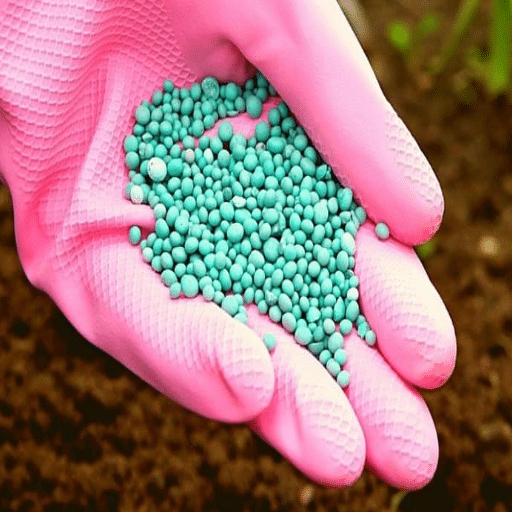
Definition and Types of Organic Fertilizers
Organic fertilizers include materials of plant and animal origin that serve as natural sources of essential nutrients for soils and plants. Unlike synthetic fertilizers, they improve soil structure while promoting beneficial microorganisms, supporting long-term soil fertility and sustainability. Organic fertilizers release nutrients slowly as they need to decompose first, contributing favorably to maintaining nutrient balance in soils.
Common Types of Organic Fertilizers:
- Manure: Provides nitrogen, potassium, and phosphorus from livestock waste
- Compost: Made from rotted plant material and kitchen waste, improves soil texture
- Bone Meal: Supplies phosphorus and calcium for root and flower growth
- Blood Meal: High-nitrogen option that encourages leaf development
- Seaweed Fertilizers: Supply trace minerals and growth hormones from marine plants
Benefits of Using Organic Fertilizers
- Improved Soil Health: Studies confirm a 25-30% increase in microbial activity, supporting proper nutrient cycling and soil aeration
- Reduced Environmental Impact: Nitrate leaching reduced by 60% compared to synthetic alternatives
- Enhanced Nutrient Release: Slow and steady process ensures plants receive nutrients throughout their lifespan
- Soil Biodiversity Support: Soils treated with compost show 20-50% larger microbial biomass
- Long-term Savings: Reduced application frequency and improved soil fertility over time
Comparing Organic vs. Synthetic Fertilizers
| Key Point | Organic | Synthetic |
|---|---|---|
| Nutrient Release | Slow | Fast |
| Soil Impact | Improves | Depletes |
| Plant Safety | High | Risk of Burn |
| Environmental | Safe | Pollution Risk |
| Cost | Higher | Lower |
| Application | Complex | Easy |
| Nutrient Content | Variable | Consistent |
| Longevity | Long-term | Short-term |
Exploring the 5-10-10 NPK Ratio
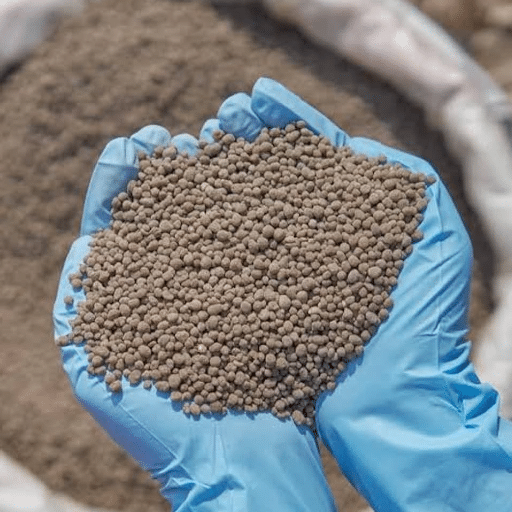
What the Numbers Mean in 5-10-10 Fertilizer
The numbers in 5-10-10 fertilizer refer to the percentage by weight of three primary macronutrients essential for plant growth: nitrogen (N), phosphorus (P), and potassium (K). This formula contains 5% nitrogen, 10% phosphorus, and 10% potassium.
Nutrient Breakdown:
- Nitrogen (N) – 5%: Facilitates chlorophyll formation and photosynthesis, promoting vigorous leaf and stem growth
- Phosphorus (P) – 10%: Essential for root formation, flowering, and seed generation; synthesizes ATP for energy transfer
- Potassium (K) – 10%: Strengthens plant cell walls, improves drought resistance, and enhances disease tolerance
How the 5-10-10 Ratio Supports Plant Growth
This balanced ratio is especially suitable for crops where fruit and flower production is prioritized over excessive foliage growth. The moderate nitrogen level prevents plants from becoming too tall while directing energy toward blooming and fruit setting. Studies show that fertilizers with higher phosphorus and potassium content can improve flowering and fruiting by 20-30% in certain crops compared to balanced formulations.
Benefits of Balanced Nutrient Ratios for Different Plants
- Increased Photosynthetic Efficiency: Crops with proper N-P-K ratios accumulate 15-20% more biomass
- Better Root Development: Good phosphorus fertilization improves root mass density by up to 30%
- Higher Crop Yields: Tomato plants show 25-35% higher yields with balanced N-P-K formulations
- Disease Resistance: Plants adequate in potassium have a 40% less chance of disease
- Even Flowering and Fruit Development: Balanced nutrients show a 20% increase in fruit uniformity
Application Tips for 5-10-10 Fertilizer
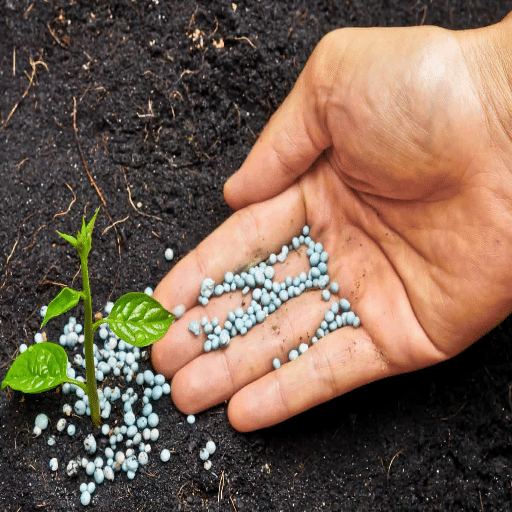
Proper Dosages for Different Crops
| Crop Type | Application Rate | Method |
|---|---|---|
| Vegetables | 1 lb per 10 linear feet | Work into soil before planting |
| Root Crops | 0.5 lbs per 10 linear feet | Broadcast and mix into topsoil |
| Fruit Trees | 1 lb per year of age (max 10 lbs) | Spread around drip line |
| Strawberries | 1 lb per 50 sq ft | Apply at planting |
| Raspberries | 1.5-2 lbs per 10 feet | Side-dress in early spring |
| Flowers | 0.25-0.5 lbs per 10 sq ft | Till into soil at planting |
Timing and Methods for Application
Nutrient applications should be timed to coincide with crop phenological stages for better uptake and utilization. Nitrogen is needed during early vegetative stages, while phosphorus and potassium are required during flowering and fruiting stages.
- Broadcasting: Evenly spread nutrients across the field for pre-plant soil preparation
- Band Application: Place nutrients directly in the root zone for precision
- Foliar Feeding: Apply through leaves for rapid absorption
- Variable Rate Systems: Use GPS and sensors for targeted application based on field variability
Best Uses for 5-10-10 Organic Fertilizer
Ideal Crops for 5-10-10 Fertilizer
The 5-10-10 blend is particularly suited for crops requiring high phosphorus and potassium levels to maximize flowering, fruiting, and root development:
- Root Vegetables: Carrots, radishes, and beets benefit from phosphorus for healthy root growth
- Fruiting Plants: Tomatoes, peppers, and eggplants require elevated phosphorus during flowering
- Tree Fruits: Apples, blueberries, raspberries for steady production and orchard health
- Flowering Ornamentals: Roses, azaleas, zinnias for brilliant blooms and strong stalks
Application in Vegetable Gardens
| Vegetable | Application Rate | Timing | Benefits |
|---|---|---|---|
| Tomatoes | 1-1.5 lbs per 50 sq ft | At transplanting | Strong root growth, healthy fruit development |
| Carrots | 1 lb per 25 sq ft | Before sowing | Encourages root development over foliage |
| Peppers | 1 tbsp per plant | When flowering starts | Improved fruit quality and disease resistance |
| Cucumbers | 3 lbs per 100 sq ft | Before planting | Strong vines with abundant fruit |
| Beans | 2 lbs per 50 sq ft | Before planting | Enhanced flowering and pod setting |
Environmental Impact of Organic Fertilizers
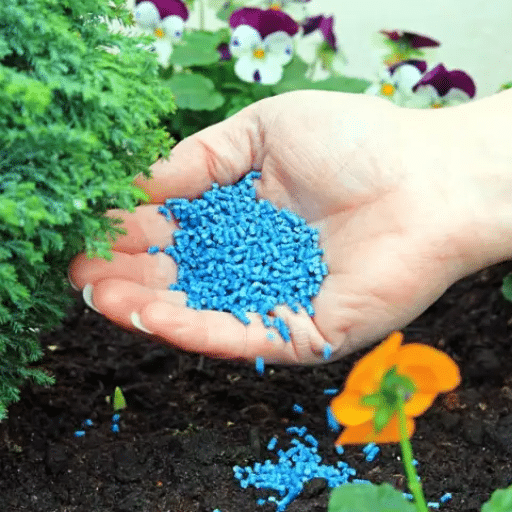
Reducing Chemical Runoff
Organic fertilizers break down slowly and integrate with soil through natural processes, leaving fewer nutrients subject to washdown during rainfall or irrigation. Key strategies for reducing chemical runoff include:
- Precision agriculture techniques for calculated nutrient applications
- Buffer strips of perennial vegetation near water bodies
- Education programs promoting sustainable practices
- Policy amendments supporting organic fertilizer use
Improving Soil Biodiversity
Soil microorganisms and invertebrates perform vital ecosystem services, including nutrient cycling, organic matter decomposition, and pathogen suppression. Methods to enhance soil biodiversity include:
- Crop Rotation: Enhances habitat heterogeneity
- Cover Cropping: Prevents soil disturbance while accumulating organic matter
- Minimum Tillage: Preserves soil structure and microbial communities
- Organic Amendments: Compost and biochar enrich microbial activity
Promoting Sustainable Gardening Practices
Sustainable gardening emphasizes resource responsibility while safeguarding soil conservation and plant productivity:
- Native and drought-resistant plant selection
- Water-efficient irrigation systems
- Mulching and green manuring for soil improvement
- Integration of modern monitoring technologies
Frequently Asked Questions
A: Organic 5-10-10 fertilizer is a granular fertilizer providing a balanced mixture of nitrogen (5%), phosphorus (10%), and potassium (10%) to promote optimal plant growth, root development, and overall plant health.
A: This fertilizer enriches soil and provides essential nutrients – phosphorus for flowers and fruit, nitrogen for leafy growth, and potassium for disease resistance and drought tolerance.
A: Apply during the active growing period, ideally just before planting seeds or transplanting seedlings to minimize transplant shock and provide essential nutrients from the start.
A: While suitable for a wide range of plants, including vegetables, flowers, and fruit trees, consider specific nutrient requirements. Some plants may respond better to different NPK ratios like 10-10-10 or 5-10-5.
A: Apply by broadcasting evenly over the soil or spraying if in liquid form. Follow recommended rates for your garden size and plant needs to avoid nutrient burn.
A: Organic fertilizers offer sustainable options that build soil health without chemical burn risk, improve nutrient retention, and encourage beneficial microorganisms for a healthy plant ecosystem.
A: The ratio represents percentages of N-P-K. Phosphorus encourages root development, nitrogen promotes leaf growth, and potassium maintains plant strength for better overall growth and yield.
A: Being organic, it’s generally safer than chemical fertilizers, but keep all gardening products away from pets and children until incorporated into soil and dust settles.
A: Organic fertilizers improve soil condition and microbial activity, while chemical fertilizers can degrade soil over time. Organic versions release nutrients slowly and steadily, promoting long-term plant health.
A: Yes, it can enhance soil health and grass growth vigor. The balanced nutrients strengthen root establishment and provide drought resistance for a green, attractive lawn.
References
- Mississippi State University – Scholars Junction: Crop and Fertilizer Bulletin
- Washington State University Libraries: Fertilizers for Western Washington
- Washington State University Libraries: Garden Soils Report



